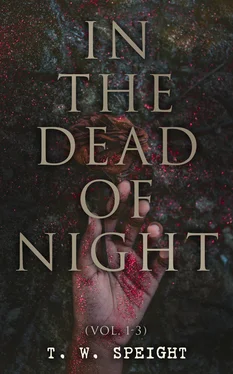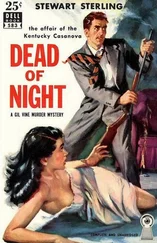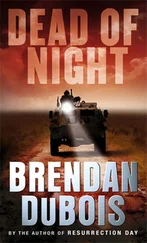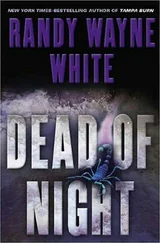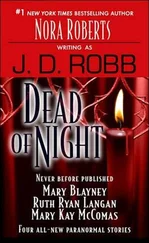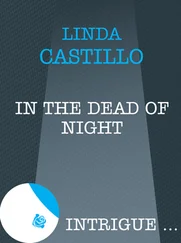T. W. Speight - In the Dead of Night (Vol. 1-3)
Здесь есть возможность читать онлайн «T. W. Speight - In the Dead of Night (Vol. 1-3)» — ознакомительный отрывок электронной книги совершенно бесплатно, а после прочтения отрывка купить полную версию. В некоторых случаях можно слушать аудио, скачать через торрент в формате fb2 и присутствует краткое содержание. Жанр: unrecognised, на английском языке. Описание произведения, (предисловие) а так же отзывы посетителей доступны на портале библиотеки ЛибКат.
- Название:In the Dead of Night (Vol. 1-3)
- Автор:
- Жанр:
- Год:неизвестен
- ISBN:нет данных
- Рейтинг книги:5 / 5. Голосов: 1
-
Избранное:Добавить в избранное
- Отзывы:
-
Ваша оценка:
- 100
- 1
- 2
- 3
- 4
- 5
In the Dead of Night (Vol. 1-3): краткое содержание, описание и аннотация
Предлагаем к чтению аннотацию, описание, краткое содержание или предисловие (зависит от того, что написал сам автор книги «In the Dead of Night (Vol. 1-3)»). Если вы не нашли необходимую информацию о книге — напишите в комментариях, мы постараемся отыскать её.
In the Dead of Night (Vol. 1-3) — читать онлайн ознакомительный отрывок
Ниже представлен текст книги, разбитый по страницам. Система сохранения места последней прочитанной страницы, позволяет с удобством читать онлайн бесплатно книгу «In the Dead of Night (Vol. 1-3)», без необходимости каждый раз заново искать на чём Вы остановились. Поставьте закладку, и сможете в любой момент перейти на страницу, на которой закончили чтение.
Интервал:
Закладка:
CHAPTER IV.
GOLDEN TIDINGS.
Table of Contents
Days and weeks passed over before the feeling of loneliness caused by Tom's departure from Gatehouse Farm quite wore itself away--before Lionel got thoroughly back into his old contented frame of mind, and felt again in the daily routine of his quiet homely life that simple satisfaction which had been his before the night of the storm. But as the lengthening days of autumn deepened slowly onward towards Christmas, the restlessness and gloom that had shrouded his life of late began to vanish little by little, so that, by-and-by, as Mrs. Bevis joyfully told her husband, "Master was beginning to get quite like his old self again."
The farm preparations for winter were all made. Lionel, looking forward to a long period of leisure, had decided to begin the study of Italian. He had been into Melcham to buy the necessary books, and got back home just as candles were being lighted. On the table he found two letters which had arrived by the afternoon post. One of the two was deeply bordered with black; the other he recognized at once as being from Tom Bristow. He opened Tom's letter first.
In a few hurried lines Tom told Lionel how he had been laid up again from a severe cold which had settled on his chest, and how the doctors had ordered that he should start at once for Algeria with a view of wintering there. He wrote rather dolefully, as one whose business concerns would be altogether disarranged by this imperious mandate, which, nevertheless, he dare not disobey. "I hope to come back next spring with the swallows, thoroughly rejuvenated," he wrote; "when I will not fail to look you up at dear old Gatehouse Farm."
Lionel took up the second letter with some curiosity. But when he saw that it bore the Duxley post-mark, he guessed in a moment the tidings it was about to tell him. Nor was he mistaken. It told him of the death of his uncle, Arthur St. George, of Park Newton, near Duxley, Midlandshire--and contained an invitation to the funeral, and to the subsequent reading of the dead man's last will and testament.
"This letter is written by my uncle's lawyer," said Lionel to himself. "Why couldn't my cousin Kester write to me?"
It was hardly to be expected that Lionel could either feel or express much sorrow for the death of an uncle whom he had never seen; whom he only knew by reputation as a man thoroughly selfish and hard hearted; who had persistently slighted and ignored his, Lionel's, mother, from the day she ran away from home till the day of her death--and who had been heard to declare, again and again, that neither his sister nor any child of hers should ever touch a penny of his money. Knowing all this, Lionel was surprised to have received even the acknowledgment of an invitation to his uncle's funeral. His cousin Kester was the heir, and would inherit everything. For him, Lionel, to attend as a mourner at the solemn ceremony was to make a hypocrite of himself by assuming a regret which he could not feel.
This Arthur St. George who had just died was Dorothy Dering's eldest brother. He had lived and died a bachelor. The second brother, Geoffry, had died many years before, leaving one son, Kester, who was adopted by Arthur, and always looked upon as his uncle's heir. Of the youngest brother, Lionel, we already know something. He, too, was a bachelor. He it was who, when over from India on leave of absence, had called upon Mrs. Dering, and had subsequently got that appointment for Lionel which his mother was not willing that he should accept.
While in England, General St. George, who did not believe in family feuds, contrived to bring his two nephews, Lionel and Kester, together. The result was, to a certain extent, a failure. The two young men had never met each other before; and when, after a week's intercourse, they bade each other goodbye, it is greatly to be doubted whether either of them cared about seeing the other again. Kester, who could make himself very agreeable when he chose to do so, was, as his uncle's heir, inclined to look down upon Lionel, and to treat him with a certain superciliousness which the latter could not readily brook. There was no open rupture between them, but from that time to the present they had never met again.
Before Lionel had quite made up his mind whether he would attend the funeral or not, there came a second note from Mr. Perrins, more imperative than the first one:--"Your cousin, Mr. Kester St. George, is away on the Continent. I am doubtful whether my notification of your uncle's death will reach him in time to allow of his being at the funeral. You and he are the late Mr. St. George's sole relatives, except General St. George, who is in India. If neither you nor your cousin attend the funeral, your uncle will be followed to the grave by no one of his own blood. But that apart, it is highly desirable that, as a near relative of the deceased gentleman, you should be present at the reading of the will, which is fixed to take place in the blue drawing-room at four o'clock on the afternoon of the day of interment."
After this there was nothing left for Lionel but to go.
It was not without a strange commingling of various feelings that Lionel Dering found himself under the roof of a house which had been the home of his ancestors for two hundred years. A stately and venerable old pile, truly. He had often heard his mother talk about it, but till this day he had never seen it. It was something to feel proud of, that he was the scion of a family which could call a place like Park Newton its home.
He was received by Mr. Perrins with a cordiality that was at once grave and respectful. Kester St. George had not arrived; neither had there been any message from him. They waited till the last possible moment, but he did not come. Thus it happened that Lionel found himself in the novel position of chief mourner at the funeral of a man whom he had never even seen. He was glad when the ceremony was over.
Then came the reading of the will. "I wish to goodness my cousin would come, even at this the last moment," said Lionel to the lawyer as they walked together towards the blue drawing-room.
"I don't really know that it matters greatly," replied Mr. Perrins with a significant smile. "I dare say we shall get on very well without Mr. Kester St. George."
Ten minutes later Lionel understood the meaning of the lawyer's strange remark. Ten minutes later he found himself the owner of Park Newton, and the possessor of an income of eleven thousand pounds a year.
It was even so. Everything, with the exception of a few trifling legacies to old servants, that Arthur St. George possessed in the world he had bequeathed without reservation to his nephew, Lionel Dering. The name of Kester St. George was not even mentioned in the will.
"The Park Newton estates have never been entailed," said Mr. Perrins in parenthesis, as he folded up the will. "It was quite competent to the testator to have left the whole of his property to St. Bartholomew's Hospital, had he chosen to do so."
For the moment Lionel was overwhelmed. But when Mr. Perrins had congratulated him, and the doctor had congratulated him, and the butler and the housekeeper, old servants of the family, had followed suit, he began to feel as if his good fortune were really a fact.
"Now I can marry Edith," was his first thought.
"It seems more like a dream than anything else," said Lionel to Mr. Perrins a little later on, as the latter stood sipping a glass of dry sherry with the air of a connoisseur.
"I should very much like to dream a similar dream," answered the lawyer.
"But about my cousin Kester St. George,--he was adopted by my uncle after his father's death, and was brought up at Park Newton, and it was understood by everybody that he was to be my uncle's heir?"
"It is entirely Mr. Kester St. George's own fault that he does not stand in your position to-day."
Читать дальшеИнтервал:
Закладка:
Похожие книги на «In the Dead of Night (Vol. 1-3)»
Представляем Вашему вниманию похожие книги на «In the Dead of Night (Vol. 1-3)» списком для выбора. Мы отобрали схожую по названию и смыслу литературу в надежде предоставить читателям больше вариантов отыскать новые, интересные, ещё непрочитанные произведения.
Обсуждение, отзывы о книге «In the Dead of Night (Vol. 1-3)» и просто собственные мнения читателей. Оставьте ваши комментарии, напишите, что Вы думаете о произведении, его смысле или главных героях. Укажите что конкретно понравилось, а что нет, и почему Вы так считаете.
